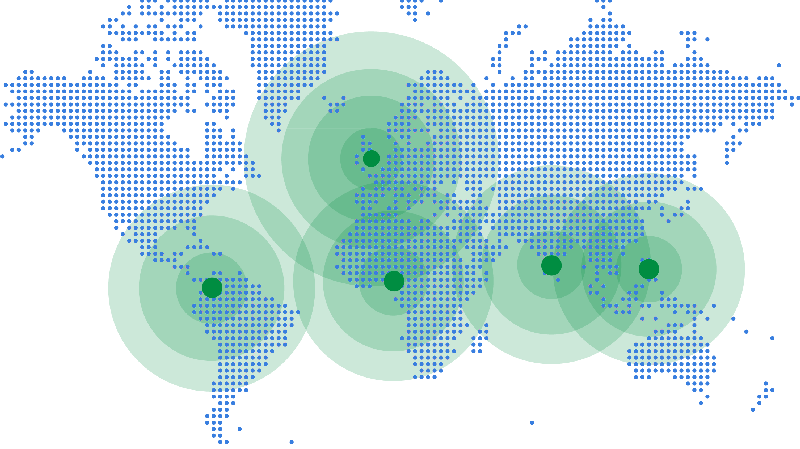New global health initiative for genomic surveillance of antimicrobial resistance funded by NIHR

The Centre for Genomic Pathogen Surveillance based at the Wellcome Trust Sanger Institute, is to house a Global Health Research Unit to monitor antibiotic resistant bacteria around the globe. Funding for this initiative has been awarded by the National Institute of Health Research (NIHR), to enable DNA sequencing and genomic surveillance of resistant bacteria through National laboratories in the Philippines, India, Nigeria and Colombia.
The £6.8M funding is part of the wider Official Developmental Assistance (ODA) budget from the government, which aims to improve the health of patients and public in low and middle-income countries. Such research is vital to protect the UK at home. Disease knows no borders, and we are continually under threat from poorly understood infections and antimicrobial resistance. Good health is a global endeavour and the UK is a leader in this area of research and innovation.
Coordinated in the UK and in partnership with leading researchers and institutions in The Philippines, India, Nigeria and Colombia, the Global Health Research Unit will provide surveillance data for bacterial pathogens using whole genome sequencing.
The Unit will provide resources and training in genomic methods, enhancing local capacity for spotting and tracking resistant strains. These data will enable local understanding of resistance while also feeding into national and international monitoring of key bacterial infections. Health care professionals will then be able to use this information to inform public health policy locally and globally.
“It is tremendous news that NIHR are supporting our Global Health Research Unit. Antibiotic resistance is a major international threat to public health and a global problem, which requires co-ordinated responses across multiple countries. This funding will enable us, and partners, to enhance local capacity for research and active genomic surveillance in the Philippines, India, Nigeria and Colombia. Through sampling and sequencing the DNA of resistant and sensitive bacteria within these strategically relevant countries, we will enhance local research capacity while feeding data into national and international surveillance for monitoring and spotting the emergence of resistance. The information from these units will ultimately help to improve the public health response of entire regions.”
Dr David Aanensen Director of the Centre for Genomic Pathogen Surveillance at the Wellcome Trust Sanger Institute*
“The award is a major achievement for the Centre for Genomic Pathogen Surveillance. It is wonderful to see the acknowledgement of the substantial research on antimicrobial resistance that is taking place here at the Sanger Institute, and demonstrates strong support for our work from the UK Government.”
Professor Sir Mike Stratton Director of the Wellcome Trust Sanger Institute
The locations of the four National laboratories are important, as each is already involved in national antimicrobial programmes and plugged into current networks. By enabling genomic tracking, funding will enhance existing surveillance and local research for these regions while feeding into international and global monitoring.
“With the emergence and global spread of antibiotic resistance, there is a huge need for this type of initiative. Low and middle-income countries have the greatest need for assistance, and the four that have been focused on stand to benefit enormously from the impact of this new technology in their own research and healthcare. These units have strategic positions around the globe as gateways to continents and this initiative is a major milestone in progressing towards global surveillance of antibiotic resistance.”
Professor Sharon Peacock Honorary Faculty member at the Wellcome Sanger Institute and Professor of Microbiology at the London School of Hygiene & Tropical Medicine
More information
*Dr David Aanensen’s full affiliations are: Joint Faculty Wellcome Trust Sanger Institute and Dept. Infectious Disease Epidemiology, Imperial College London; and Honorary scientist at University of Cambridge NHS trust.
Selected websites
The National Institute for Health Research (NIHR)
The National Institute for Health Research (NIHR): improving the health and wealth of the nation through research. Established by the Department of Health, the NIHR:
- funds high quality research to improve health
- trains and supports health researchers
- provides world-class research facilities
- works with the life sciences industry and charities to benefit all
- involves patients and the public at every step.
For further information, visit the NIHR website (www.nihr.ac.uk).
This call for research was commissioned by the National Institute of Health Research using Official Development Assistance (ODA) funding.
The Centre for Genomic Pathogen Surveillance
The Centre for Genomic Pathogen Surveillance is an initiative based at The Wellcome Genome Campus focussed on genomic epidemiology, laboratory and software engineering for global surveillance of microbial pathogens. The Centre seeks to provide genomic and epidemiological big data and tools to allow researchers, doctors and governments worldwide to track and analyse the spread of pathogens and antimicrobial resistance.
The Wellcome Trust Sanger Institute
The Wellcome Trust Sanger Institute is one of the world’s leading genome centres. Through its ability to conduct research at scale, it is able to engage in bold and long-term exploratory projects that are designed to influence and empower medical science globally. Institute research findings, generated through its own research programmes and through its leading role in international consortia, are being used to develop new diagnostics and treatments for human disease.
Wellcome
Wellcome exists to improve health for everyone by helping great ideas to thrive. We’re a global charitable foundation, both politically and financially independent. We support scientists and researchers, take on big problems, fuel imaginations and spark debate.


